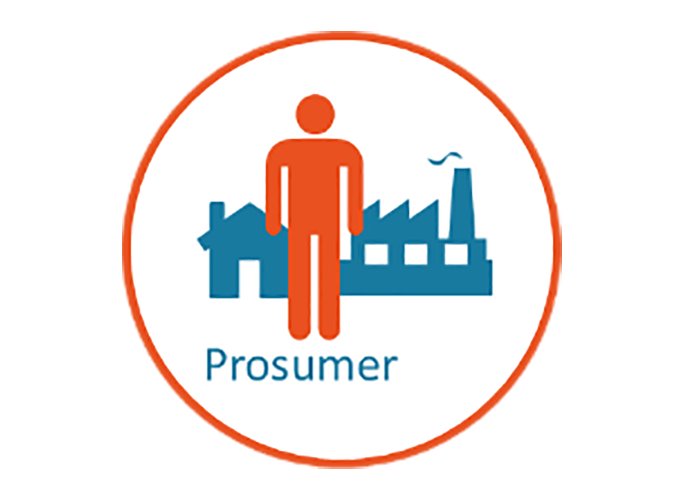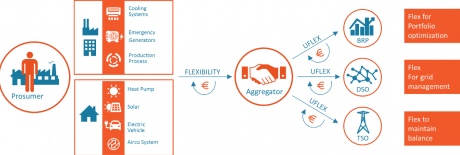

FUSION aims to save customers £236m by 2050, and reduce carbon emissions by 3.6m tonnes
Researchers from the Department of Electrical and Electronic Engineering are working with eight partner organisations to develop a system to manage a flexible, smart energy network. The team, from the Control and Power Group, are part of the £6m project called FUSION, funded by Ofgem through their recent Electricity Network Innovation Competition.
Led by SP Energy Networks, the aim of the project is to implement an intelligent competitive marketplace where energy flexibility and demand-side response can be bought and sold. This kind of system would improve consumer choice, save customers £236m by 2050, and reduce the UK’s carbon emissions by 3.6m tonnes.

An example of how the Universal Smart Energy Framework can be implemented on an electricity grid
Over the next five years the Imperial team will investigate the various business models that could be used. They will focus on how flexible resources can participate in the local energy market and evaluate the benefits of rolling out the FUSION concept at country-wide level.
“We have been working on smart energy topics for many years now and with many partners,” says Dr Marko Aunedi, part of the Imperial team, “However this is project with SP is extremely promising and will have real world impact.”
The project is being driven by fundamental changes to the UK’s energy sector. For many years electricity has predominantly been generated in large power stations and transmitted around the country. Now with the advent of technologies like wind turbines and solar panels generation is more distributed and energy is sourced more locally. This has a large impact on the distribution network, where once energy flowed from generator to user it is now much more complex.
It is this complexity that FUSION hopes to tackle by making local network more adaptable and make use of “smarter” energy flows.
“We are going to build a marketplace where consumers can buy and sell flexibility,” says Dr Aunedi, “They can make choices like running the dishwasher outside peak times and this will save them money and reduce load on the electricity grid.”
FUSION will start in January 2018 and run for 5 years till December 2022. The other partners alongside Imperial are DNV GL, Origami Energy, PassivSystems, SAC Consulting, The University of St Andrews, Fife Council and Bright Green Hydrogen.
Article text (excluding photos or graphics) available under an Attribution-NonCommercial-ShareAlike Creative Commons license.
Photos and graphics subject to third party copyright used with permission or © Imperial College London.
Reporter
Neasan O'Neill
Faculty of Engineering

Contact details
Email: press.office@imperial.ac.uk
Show all stories by this author



